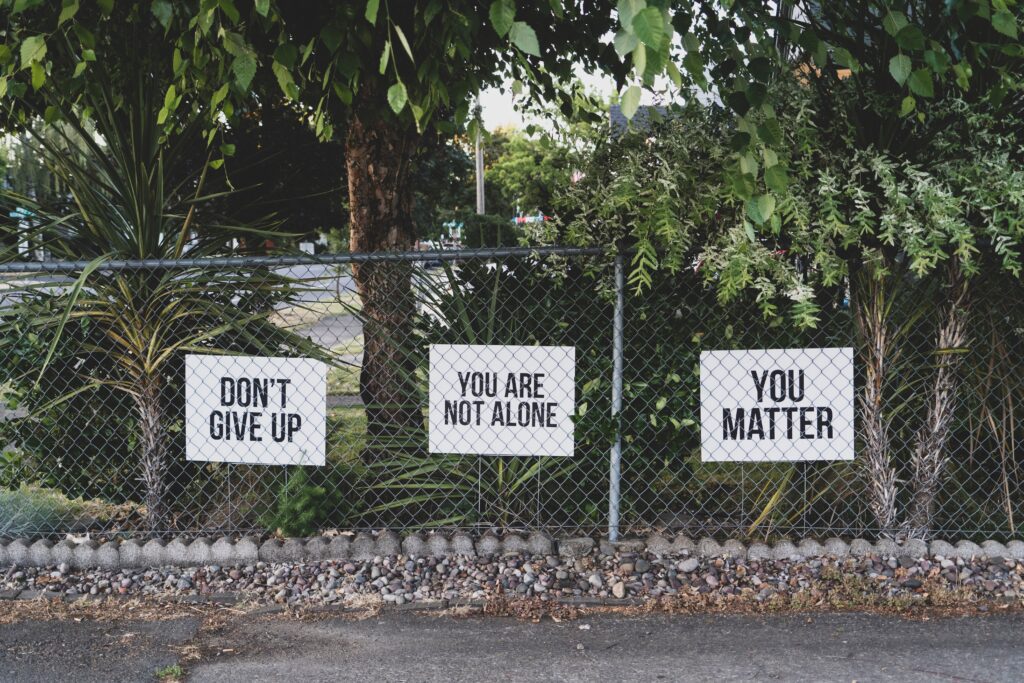
In today’s ever-on society, where we are bombarded with a vast amount of non-stop information and advertisements about who you should be, what you should think about, what you should wear, and say, it is more than likely that parents at some point may face the true possibility that their child may suffer from a mental health illness. No parent wants to think about this, however, if it is true for adults than it is true for children as well.
The Mayo Clinic states that a “mental illness is common. About 1 in 5 adults has a mental illness in any given year.” So if that is true, then just have a look at the statistics for say children in the U.S. published by the CDC. Places like the UK, show similar statistics in that one in eight children are diagnosed with some form of mental illness. Similarly in Germany with 1 in 4.
If you take time to think about this, as a parent this is frightening, yet at the same time, it is our responsibility and the way we shape society along with the environment around our children that is responsible for this.
So what should we do about this?
I think we need to begin to reflect on ourselves and learn to change our behavior. We can’t simply sit back, hope for society to become better, pray for things to improve, or do a multitude of other things that would supposedly help. In order to help our children process negative emotions and as parents to learn how to navigate through difficulties, we need to learn how to communicate with our children. We automatically assume we know how to talk with children because we are adults. That is not the case. In order to positively affect children and nurture their well-being emotionally, and mentally, we need to learn, as adults, to genuinely learn how to communicate with them by creating a bond, creating a family environment that allows your child to flourish mentally and physically, to bridge the emotional gap that could potentially begin forming as early as age 6.
And one tried and true method of doing this is to ask specific questions to your child to help them better process their emotions.
Why questions matter, and the way you ask them
As adults, we are conditioned by society to be this, or act like that, however, when it comes to parenting we as adults often miss the mark of our children’s emotions and their needs. We think that a conversation with them over dinner is enough, or making them a quick bite to eat, but simply providing for them physically and on a shallow emotional level is not enough. Children require you to identify with them, to be able to empathize. They need to see intentionality. More than just a hug and positive words. They grasp it when you simply take the time to sit next to them while they’re playing and watch them or play with them by putting out the world around you and focusing on them.
Albeit all the stress we go through as adults in a society we contribute in creating, between work and family, between getting things done and relaxing, meeting family and friends, it is our responsibility to model what a healthy person looks like. Meaning if we are not intact, then we can’t expect our children to be the same, even when we try to hide the problems of life from them – financially, work-related, family issues, etc. We need to help navigate our children through their negative emotions.
The way most parents deal with this is that they believe they are not equipped to deal with their child, often thinking they may be helpless to navigate them through those emotions. Some may believe that you simply throw some money at a therapist, whose job it is to “fix” the broken aspects. However, as parents, we are directly influencing our children day in and day out, and we have all the tools, to help them thrive emotionally in a culture focused on the wrong values of human life.
Again, I don’t want the previous paragraph to sound like you, and you alone, are responsible. Therapists and counselors may be useful, and it takes a lot of humility in a parent to allow their children to have other healthy adults in their life. Parenting also means you know what your boundaries are and accept that you will not have all of life’s answers. That is okay! The important aspect here is that you do your best to understand, comprehend and apply everything you can to better identify with your kids to give them the possibilities to work through emotions rather than piling them in a mental box that may eventually lead to disorders.
5 questions to help your child
1. How are you feeling emotionally today?
As parents, we tend to get lost in our ever-on world of work, family tasks, getting things done, and hence get lost day in and day out in our busy days. With that, we often tend to just ask our children, “How are you?”. Yet, that question does not hit the mark. You might as well just be having small talk with a neighbor.
The way we phrase questions has a big impact on the answers we receive. By asking your child “How are you feeling emotionally today?” you are opening up a window that will help you understand the world in which your child is. You are specifically asking not how the day went – what goods and bad – but how those events affected their feeling and emotions, while at the same time conveying that it is completely fine to feel that way. On top of this, it gives them insight that you care and are willing to walk with them through their emotions, and that they can confide in you.
And to make that a bit more clear, take the following question and why you should not say it:
“What’s wrong?”
The way that question is phrased automatically assumes something about your child (or anyone you ask). In this instance, you assume something is wrong. You’re already conveying emotions onto your child (judgmental), and albeit that may be the case, you don’t know what their true emotions are. By asking the right questions, you create a space they understand is not punishing for them, but a safe haven.
Furthermore, when your child opens up, ensure that your response is not a “respond and fix” answer. But listen to understand. We need to learn that our advice or suggestions to our children confiding in us, is what we must do as parents. We need to point them towards hope and solutions. But sometimes trying to fix a situation is not what your children want. Make sure the timing and reasoning of your response are right.
I am a bad teacher (my wife tells me the same), something I am learning to become better at, however, I am a good coach. And I too often make the same mistake of responding to my kids, albeit at a young age, thinking they need my advice to fix a situation. However, I too have come to learn that often as a parent, we just need to be more attentive of the overall situation and not act “as the parent.”
An answer along the lines of: “Sorry, you’re going through that. But know that mommy and I are here for you. We love you no matter what decision you make, and if you want to know what I would do, then just let me know.”
You would be amazed at how kids respond to this in different scenarios.
If they don’t want it, then leave it. However, them knowing that even when times are tough, emotionally, physically, mentally, they can trust you to help navigate through life is all children need.

2. What happened today that made you smile (or laugh, or ______)?
Again, this comes to nuances. When we as parents see our children and the way they behave or the facial aspects of their emotions, we tend to say “Did anything happen….” which goes back to how you ask questions. A “did” usually brings about a yes/no answer, which leads to the next question, etc.
However, asking your child an open-ended question like “what happened” will help them process through their answer. It spurs thought about the reflection of their day. They feel a certain way, because of X. Then they ponder why that is so.
When I pick up my kid from school and ask him this, there are days he’ll answer, and days when he just bikes along. And I’ve come to learn as a parent that that is okay. Everything has its time. But the point I as a parent make is that my child knows I care about their day. He knows that I’ll have a listening ear to whatever the situation was, no matter how ridiculous the event may have been.
Having that emotionally healthy relationship with your children from an early age requires a significant amount of patience and knowing when you as a parent need to be a parent, and when you need to be a spectator. Understanding that their hearts are, from birth on, in your hands, is something to be ever gentle about. You shape them.
3. What would you like to do together with me today?
We often make suggestions to our kids as parents like, go play with your toys or read a book, however, if you take the initiative and the time, each day, to ask your child this question, then chances are their world will light up. It shows that you identify with them and are taking the initiative to show them that their time matters to you just as much as anything else, if not more.
I believe that in this ever-on world, one of the most important things you can do as a parent is to spend family together, intentionally, with a strict focus on family. No phones, no outside distractions, and partaking in whatever it is even if it’s something you as an adult don’t want to do.
It’s one thing to have mommy or daddy time. This is valid as well, however, showing your children that you want to intentionally spend time with them sends a strong signal for their mental well-being. Even as a single parent.
4. Anything you want to tell us that is hard to say?
When your child seems frustrated or sad, creating a safe zone is important. The earlier you do this, the more honest conversations will be when they grow up. Children understand, from a certain age, that the world is judgmental. This is true for everyone, hence they assume that parents too will judge. By letting them know that there is no taboo topic, you create a mental safe space where they know that they will not be judged.
As parents, we all want the best for our child/children however as life is it is natural for them to get into moments that are surprising, or unfortunate and often we as parents may wish to have been there to do something that may have changed the outcome. But that is not life. Our duty is to create a space where they know they can share their feelings.
Is it not better for your child to share everything without hiding things? Learn to be graceful as an adult. Reward the openness, no matter what the message may be. Don’t punish it. There is a fine line between discipline and grace.
In these situations, appreciate and acknowledge their openness – “I know that may be hard to say, but that is okay”. If they know they can without judgment and condemnation tell you, they will, when they need you at any stage in life.

5. What are you grateful or thankful for today?
We do this a lot in our family. We are fortunate to be in the situation we are in, and albeit society running a menace on consumerism, media, and everything else you should be doing in life, we take the time to help our children understand the good things that happen in their life.
Personally, one of the largest problems that I believe often lead to mental struggles is the fact that in western culture, all of us, especially children, are targeted and are unfortunately unaware of what they have and are very aware of what they don’t have.
Please give that sentence some thought!
Raising children that appreciate the small things, are content and grateful, will have a long-lasting impact on their lives and the choices they make. There are two ways to go about this. One is logically being the role model as a parent, and the second is asking (as well as you as an adult saying) what you are grateful for.
Society tells us, and often reminds us, that you need and should have it all. It is your right and privilege. However, changing our mindset and focusing on the things that truly matter in life, not money or career titles, will show your kids that contentment and appreciation for life come in many ways.
In closing
We all want the best for our children. And if more of us took the time to build a safe place for children to share their hearts, difficulties, and emotions, a place where we as adults nurtured their well-being from an early age, learn to not just be adults but to identify with them and also give them the freedom to fail, then we do our duty in supporting them emotionally and mentally.
We are not perfect, and neither are children.
Children do not need a hero in every situation to save them from difficult circumstances.
Children do not need a judge or a jury (like society) to sentence them for the mistakes they make.
Children need a shepherd to guide them, to create a safe space, to work through painful emotions or circumstances. Not more, not less.
So as parents, let us learn how to be more mindful in what we say and do to our children.









